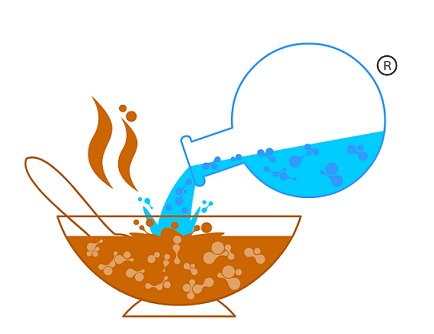
"I realized that the skills and knowledge gained from my education, training, and past experiences are like valuable toolsets. They can be applied to solve real-world problems, ensuring the safety and prosperity of humanity and our planet."
Jul 19, 2023 | BY DIVYA P. KUMAR AND RATNESHWAR THAKUR
In this 2023 edition of SciSoup's Career Development and Mentoring Blog Series, we are delighted to feature Dr. Sandeep B. Gaudana - a lead scientist in the environment science R&D team at Reliance Industries Limited (RIL), Vadodara.
1) Could you briefly introduce yourself to the audience?
I am a lead scientist in the environment science R&D team at Reliance Industries Limited (RIL), Vadodara. I hold a PhD in Microbiology and have a B.Sc. and M.Sc. in Microbiology. I completed two post-doctoral stints, one at IIT Bombay and another at Michigan State University (MSU, USA). Aside from my work, I am passionate about public speaking, enjoy reading fiction, and have a love for listening to and singing light/semi-classical Indian music.
2) Describe your responsibilities in the current position that you hold.
As a lead research scientist at Reliance, I focus on developing innovative biotechnology and green chemistry-based wastewater treatment processes across all manufacturing sites. The responsibilities of my team include conceptualizing and conducting experiments, analyzing data, preparing reports, scaling up and commercializing processes, generating and safeguarding intellectual property, publishing in peer-reviewed journals, and envisioning future thrust ideas towards sustainable manufacturing.
In addition to my research work, I serve as a seminar secretary for our department, organizing informative sessions by inviting both internal and external speakers. Furthermore, I hold the position of founder Vice President Education at our site's Toastmasters Club, emphasizing the importance of effective communication and public speaking skills.
3) You were active in academic research and then took up a role in Reliance Industries Limited. How did this transition happen?
During my first post doc at IIT Bombay, I led a project sponsored by the breakthrough R&D of Reliance. This experience sparked my interest in industrial research and allowed me to connect with the leaders of Research & Development (R&D) department of Reliance Industries Limited. As a result, I was offered a position, which I accepted after completing my second post-doc at MSU.
4) What are the additional training(s) required or that you had to take up to fit yourself to the current profession?
I have been selected through rigorous screening for couple of flagship leadership grooming programs viz. career acceleration program (CAP) and StepUP to first level leadership (FLL). These programs have played a significant role in shaping me as a corporate scientist and potential leader. Additionally, I have been fortunate to receive and accept challenging opportunities during my 7-year tenure at RIL. In my first year, I had the opportunity to work as a visiting molecular biology expert at a partner company in Berlin. In my third year, I led a cutting-edge synthetic biology project, and in my fourth year, I transitioned into a chemistry-heavy vertical and worked on assignments related to environmental science (ES) projects. By my sixth year, I was leading the ES team.
5) How challenging and rewarding is the industrial work culture compared to that of an academic setting?
Industrial research offers exciting opportunities to work on projects that can make a significant impact and bring immense personal satisfaction when implemented on a large scale. However, it can be challenging, especially at the beginning, as one learns that ideas must undergo various assessments, such as considering their potential for business success, feasibility for scaling up, and ensuring they meet health and environmental safety standards.
6) Could you please walk us through your transition from a core molecular biologist to the field of environmental science?
My career path involved a lot of on-the-job training, mostly informal and self-driven. It offered me a chance to bring scientific concepts to life, bridging the gap between chemistry and biotechnology. This transition was made possible because of the support and guidance of kind and patient mentors. I realized that the skills and knowledge gained from my education, training, and past experiences are like valuable toolsets. They can be applied to solve real-world problems, ensuring the safety and prosperity of humanity and our planet.
7) Could you please share the future prospects of the career path you have chosen?
From where I stand, I can go on and play a humble but critical role in sustainable industrial manufacturing processes. If I pivot, I can explore the avenues of entrepreneurship in industrial wastewater treatment, green chemistry, biofuel, circular economy etc.
8) If you were asked to provide 3- tips/ guidance to aspirants who would like to follow a similar career path, what would you suggest?
- Work hard and smart.
- Take every challenge as an opportunity.
- Stay humble, confident, teachable and give selflessly.
Disclaimer - SciSoup claims no competing interest. The opinions expressed by participants in this blog are solely their own and do not necessarily reflect the views or opinions of the blog creators or its affiliates. The purpose of this blog series is to raise awareness about non-academic careers and provide mentoring insights.

Send your opinions, questions, and suggestions for future column topics and stories - to scisoup@gmail.com and engage with us on